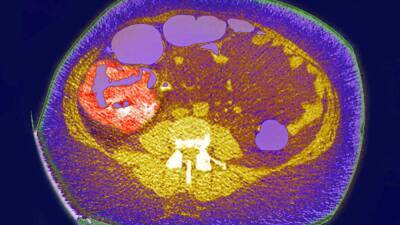Study: 90% of young ECMO-eligible COVID patients at a US hospital died amid rationing
Nearly 90% of adult COVID-19 patients who were eligible for—but didn't receive—extracorporeal membrane oxygenation (ECMO) during the height of the pandemic died in the hospital owing to a lack of resources, even though they were young and had few underlying health issues, according to a natural experiment published late last week in the American Journal of Respiratory and Critical Care Medicine.Reserved for youngest, sickestVanderbilt University researchers prospectively analyzed data from all COVID-19 patients referred to a single center for ECMO from Jan 1 to Aug 31, 2021.
Patients qualified for ECMO if they were younger than 60 years, had a body mass index (BMI) less than 55 kg/m2, had received mechanical ventilation for more than 7 days, or had irreversible neurologic injury, chronic lung disease, cancer, or advanced multi-organ dysfunction.Patients also had to have no more than three selected contraindications, including age older than 50 years, BMI greater than 45 kg/m2, underlying illnesses, receipt of mechanical ventilation for more than 4 days, acute kidney injury, receipt of vasopressors (drugs used to treat low blood pressure), hospitalization for more than 14 days, or a period of more than 4 weeks since COVID-19 diagnosis.A systematic assessment of the health system's resources to provide ECMO for eligible patients (ie, equipment, personnel, and intensive care unit bed availability) was conducted.
If resources were available, patients were started on ECMO and then transferred to an ECMO center, but patients were not referred if resources were already at capacity.
Patients transferred to other regional ECMO centers were started on the treatment after arrival at the ECMO facility."Even when saving ECMO for the
Read more on cidrap.umn.edu


















































